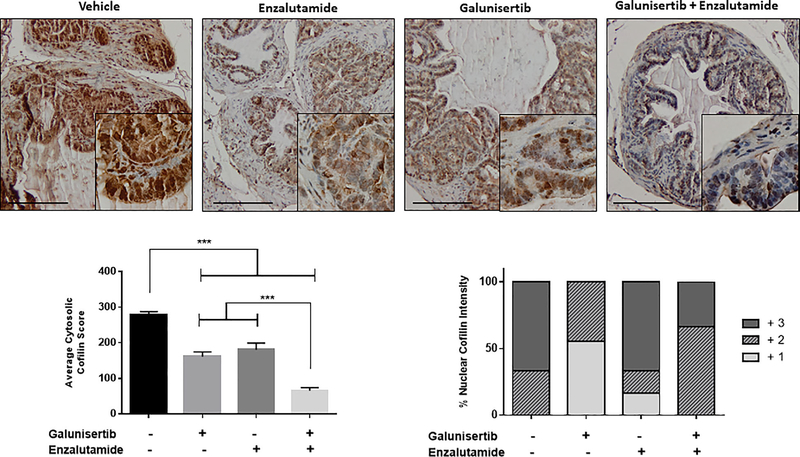FIGURE 6.
Combination of TGF-β signaling blockade and antiandogen impacts actin cytoskeleton organization in prostate tumors. Panel A reveals representative images of cofilin (TGF-β effector and actin cytoskeleton regulator) immunoreatctivity in prostate tumors after various treatments. Combination treatment of galunisertib (Tβ1RI inhibitor) and enzalutamide resulted in dramatic depletion of cofilin protein levels compared to each drug alone or vehicle control (Magnification ×200, insert ×1000). Panels B and C reveal the numerical analysis of the immunoreactivity scoring (from panel A) of the cytosolic cofilin levels and nuclear intensity of the protein, respectively. In response to the combination treatment of galunisertib and enzalutamide, there was a significant decrease in cytoplasmic cofilin expression in prostate tumors compared to vehicle controls and single drug treatment (galunisertib or enzalutamide) (P < 0.05). Galunisertib as a monotherapy resulted in decreased nuclear cofilin intensity compared to controls and the other treatments (Panel C). Numerical values represent the average scoring of cofilin immunoreactivity from three fields per tumor section, assessed by two independent observers (panel B) ±SEM. *** indicates statistically significant differences between treatments at P < 0.05. The nuclear cofilin intensity was determined based on the distribution of increasing staining intensity +1 (low), +2 (moderate),+3 (highest) among nuclei of prostate tumor sections, as shown.

